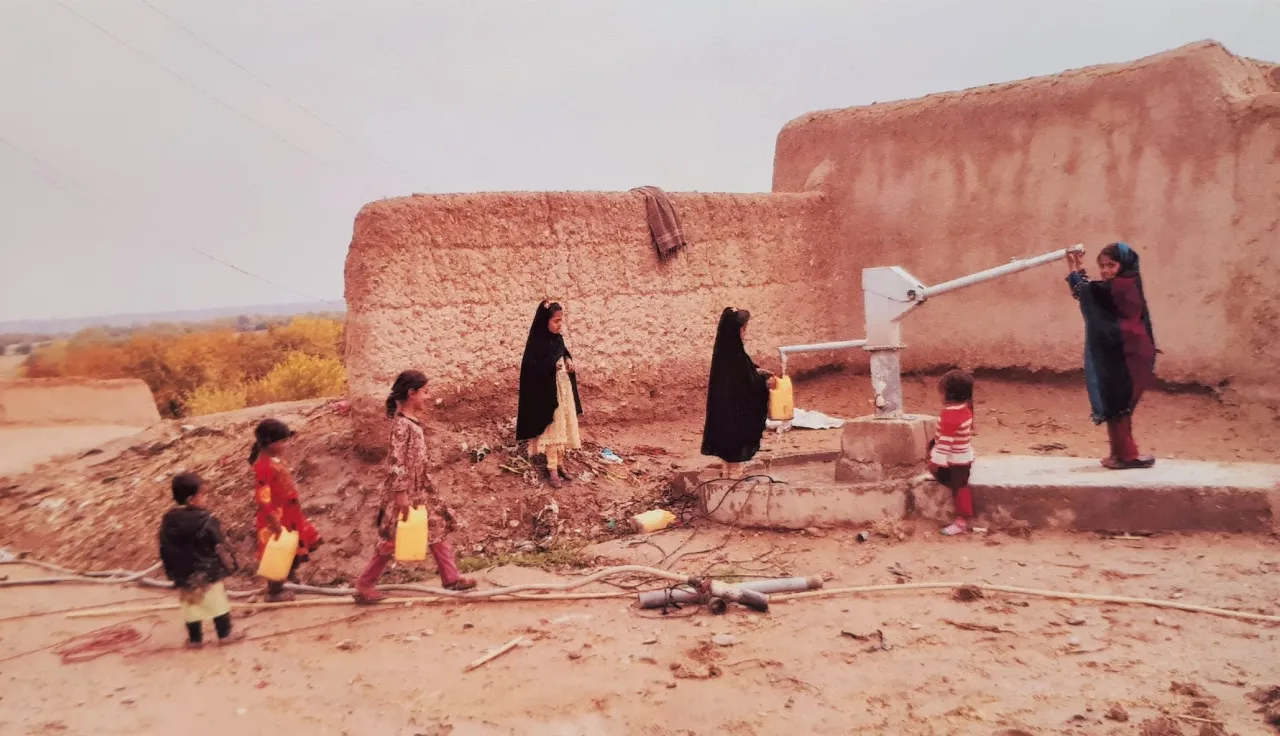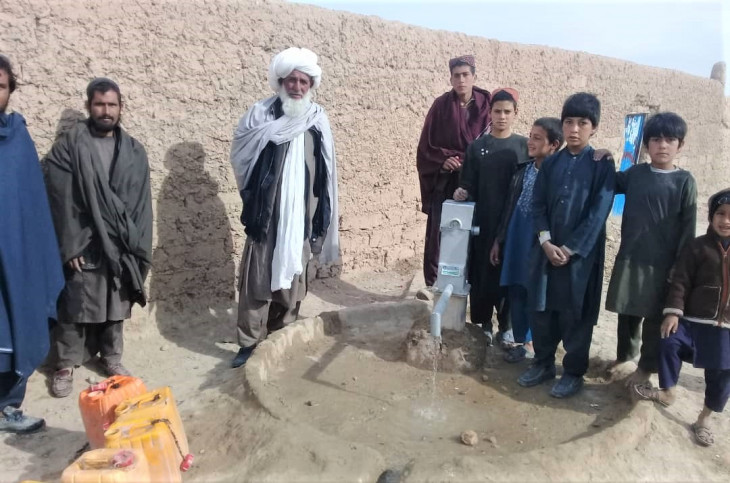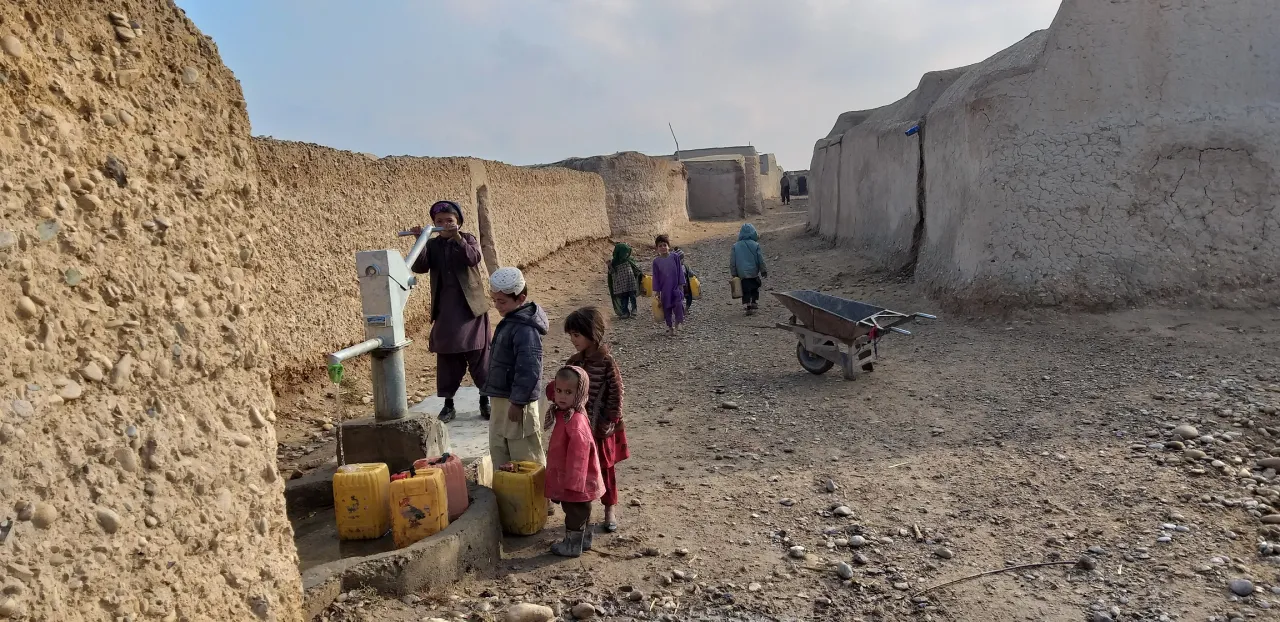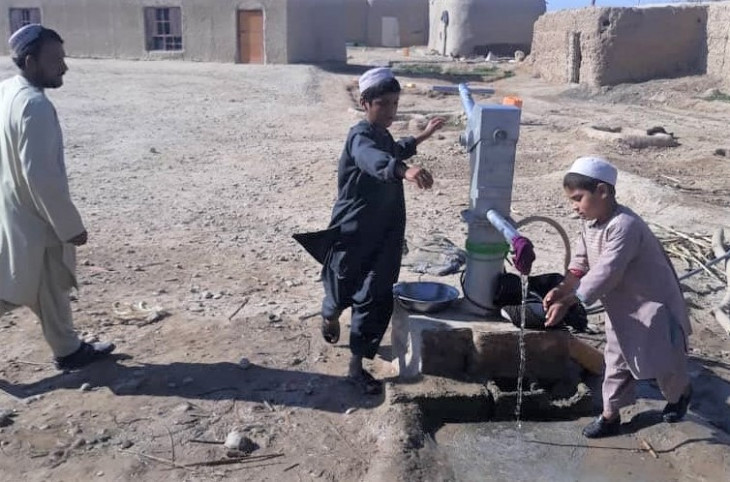Afghanistan: Repaired hand pumps gush water, health and relief in refugee camps

Violent attacks, poverty, insecure roads littered with improvised explosive devices, lack of basic health care facilities, lack of education, joblessness and largescale displacement – the people of Helmand province can share a long list of challenges that make up their daily lives on the front lines of armed conflict in Afghanistan.

After suffering from a lack of access to safe drinking water for seven years, the people can now get potable water. Mohammad Masoud SAMIMI/ICRC
Abdul Baqi and Fazal Rabi, who are among the thousands of displaced people living in refugee camps in Lashkar Gah area of the province, say what made their living environment even harsher and thrust them further into a vicious cycle of health hazards, poverty and fear was the lack of access to safe drinking water.
"All the hand pumps in our area were damaged over the last seven years and the community did not have money to repair them. So, we would brave the odds and walk several kilometres every day just to fetch some water from Helmand river or canals. But that water wasn't suitable for drinking so people, especially children, would often have diarrhoea and even get seriously ill owing to lack of health-care facilities nearby," shares Baqi.

Responding to the crisis, in 2020, the International Committee of the Red Cross (ICRC) repaired 381 hand pumps in Bolan, Karez, Qala-e-Bost and Mukhtar refugee camps in Lashkar Gah region, restoring access to safe drinking water for more than 53,000 internally displaced people.
"Thanks to the ICRC, we now get clean drinking water inside our refugee camp. The instances of people falling sick have also reduced greatly. Clean water is everything for us," says Baqi.

Children no longer need to risk their lives and walk long distances to fetch water as the ICRC has repaired all the hand pumps inside their area. Mohammad Masoud SAMIMI/ICRC
Engineer Rahmani, from the ICRC, shares that a total of 762 hand pumps were repaired across five provinces of Afghanistan, including Helmand. "Close to 107,000 people benefited from the programme in Shirzad district of Nangarhar, Mahmud Raqi district in Kapisa, Farah suburban district in Farah, Obe district in Herat and Lashkar Gah in Helmand," Rahmani says.

Children enjoy as water gushes from the hand pumps that the ICRC repaired. Mohammad Masoud SAMIMI/ICRC
He shares that repairing hand pumps in the remote parts of Lashkar Gah was particularly difficult. "Our biggest challenge was to gain access to the site for initial assessments. We were also unable to monitor the repaired hand pumps due to security reasons, but we are committed to providing assistance to those affected by conflict," Rahmani says.
As Rabi, who lives in Loy Kariz in Lashkar Gah, sees children from his community excitedly gather around the repaired hand pumps, he knows it was not easy to bring those smiles.
"We are very grateful to the ICRC for the help. It is a big relief that the women don't have to walk long distances or risk their lives every day to get water and we don't suffer frequent health problems. The quality of the repaired hand pumps is also very good, and they have been working well," he says.



